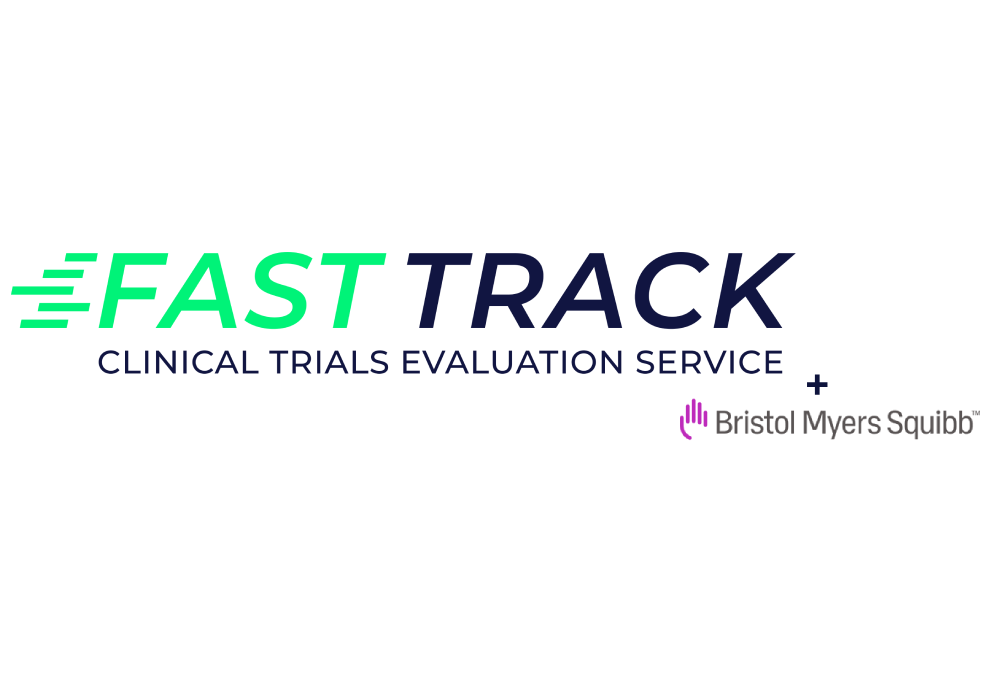Montreal’s Jewish General Hospital Authorized the First BMS Study in 8.6 Weeks and Is the Most Rapidly Activated Site in Canada
The Bristol Mayers Squibb (BMS) pharmaceutical company used the FAST TRACK Evaluation Service for the first time, which led to the Jewish General Hospital’s Dr. Sarit Assouline’s research team to obtain authorization for the CA235-0001 study in a record time of 8.6 weeks. The JGH was the first site activated in Canada and the second one worldwide for this phase I study assessing a treatment for acute myeloid leukemia and myelodysplastic syndrome.
“BMS Canada is thrilled that through our collaboration with CATALIS and Dr. Sarit Assouline and her team at the Lady Davis Institute, Jewish General Hospital in Montreal we were able to leverage the FAST TRACK Evaluation Service and achieve an accelerated start-up in a first in human acute myeloid leukemia trial. We look forward to our ongoing partnership with CATALIS and investigators as we work together to bring innovative therapeutic options to Quebec patients sooner!”
– Mary Tzortzis, Head, Regional Clinical Operations, BMS Canada
The JGH: At the Heart of Clinical Cancer Research in Quebec
At the JGH’s Lady Davis Institute, Dr. Sarit Assouline is Chief of the Division of Hematology, where she leads a team that designs and oversees innovative clinical trials, including those investigating new therapies for treating difficult-to-treat leukemias. The Lady Davis Institute’s cancer research axis is the centre’s largest and features the biggest group of oncology clinician-researchers in Quebec.
“We are desperately in need of new therapies for patients with AML and MDS. Phase I clinical trials in this disease space are instrumental and also extremely challenging. The quicker these trials can be opened and enrolled, the quicker we achieve our goals of finding more effective and safer ways to treat these deadly diseases. CATALIS allowed us to open this trial in 8.6 weeks and we enrolled the second patient worldwide. The JGH CRU is a Canadian leader in phase I studies, CATALIS is now part of how we ensure our success and how we get promising therapies to Quebec and Canadian patients so quickly.”
– Sarit Assouline MD, MSc, FRCPC, Chief of the Division of Hematology, Senior Investigator in the Lady Davis Institute, Jewish General Hospital
An Experimental Treatment That Could Improve Anti-Tumour Efficacy and the Quality of Life of Patients With AML or Refractory MDS.
The phase I clinical trial conducted by pharmaceutical company BMS aims to assess the efficacy, tolerance, and recommended dose of BMS-986497 for patients with acute myeloid leukemia (AML) or recurrent or refractory myelodysplastic syndrome (MDS).
Every year, more than 1,000 Canadians are diagnosed with AML, which makes it the second most common type of leukemia in adults¹. AML is a type of blood cancer that affects the myeloid cells found in bone marrow, which are responsible for forming blood cells (red blood cells, white blood cells, and platelets). In those affected by this disease, the bone marrow produces a large number of immature myeloid cells that do not develop properly and accumulate in the blood and marrow; this interferes with the normal production of blood cells and causes symptoms such as fatigue, frequent infections, and bleeding. AML progresses rapidly and requires immediate intervention. MDS is also a type of blood cancer characterized by insufficient production of normal blood cells. MDS progresses slowly and is generally less aggressive than AML, but it can develop into AML in severe or untreated cases.
Although there are several treatments for AML and MDS, all damage healthy cells, leaving patients weakened after several cycles of treatment. Also, the rate of resistance or recurrence after complete remission remains high, particularly in the elderly, and treatment options remain limited for patients who relapse or do not respond to standard therapies. The BMS-986497 treatment under study has the advantage of targeting leukemia cells and could, therefore, offer greater anti-tumour efficacy. It represents new hope for treatment and the possibility of improving the quality of life of affected patients who can no longer receive standard treatments.
Are you interested in participating in this clinical trial or in other studies on AML or MDS? We offer a free Personalized Support Service to help guide you in your search for clinical trials. You can also access Clinical Trials Quebec’s information and services hub. This site contains easy-to-understand educational content, graphics, and free tools that will help you to better understand clinical research and what happens during a clinical trial.
Patients at the Heart of the CATALIS Quebec Network’s Mission and of Its FAST TRACK Evaluation Service
Thanks to the commitment of the JGH and BMS, CATALIS and its Network of Partners are delighted to stimulate innovation in clinical research and reduce clinical trial authorization times by almost 75%. The aim is to accelerate the development of potential treatments that could improve the lives of patients in the province.
CATALIS would also like to thank all its public and private partners for their trust, participation in developing innovative clinical research approval methods, and commitment to implementing accelerated clinical trials in their institutions.
If you would like more information about the FAST TRACK Evaluation Service, please write to us at: info@catalisquebec.com.
¹Canadian Cancer Society (2024). Acute Myeloid Leukemia Statistics. Available at: Acute myeloid leukemia statistics | Canadian Cancer Society





